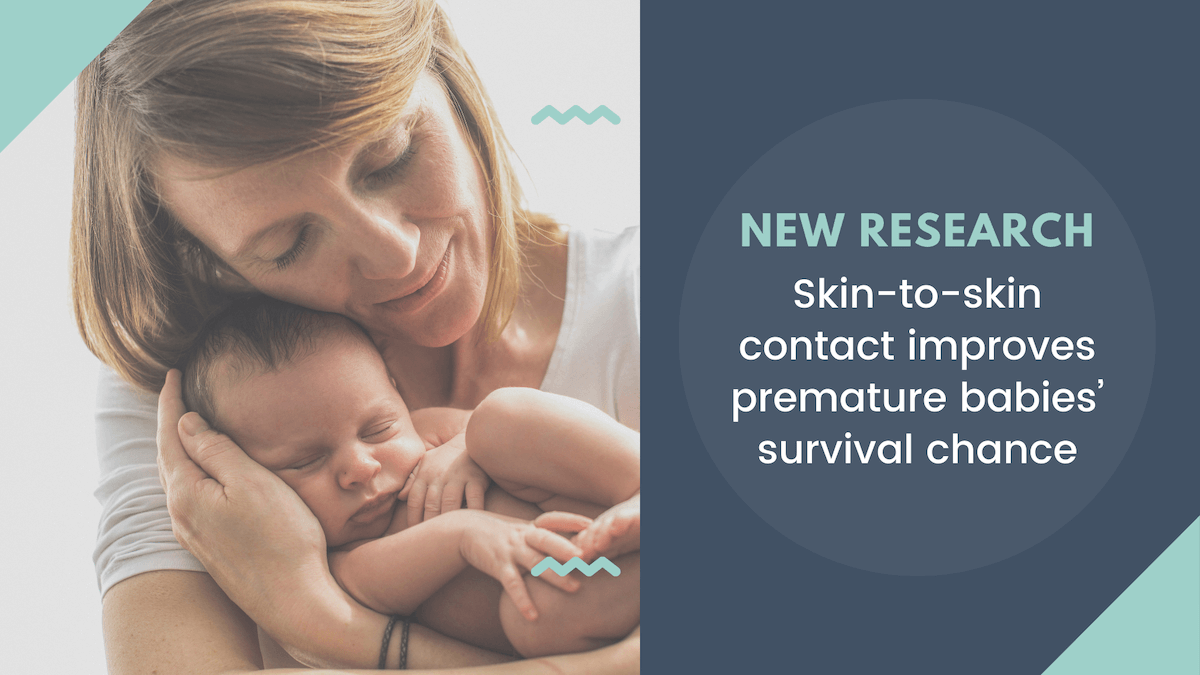Research – Immediate skin-to-skin contact improves premature babies’ survival chance

Once again science brilliantly demonstrates the magnificence of humanity, and offers new hope for premature babies. A ground-breaking study co-ordinated with the WHO and published in the New England Journal of Medicine discovered that immediate skin-to-skin contact significantly increases a premature baby’s chances of survival. This research wonderfully highlights the humanity of both premature babies and unborn babies alike; it also extinguishes the warped belief that babies in the womb are not yet human beings.
We’re so excited by this marvellous discovery – that immediate skin-to-skin contact significantly increases a premature baby’s chances of survival. It’s as if this research confirms what we inherently know – there is a beautifully powerful connection between baby and mother.
Researchers at Karolinska Institutet, co-ordinated by the World Health Organization (WHO), found that a method, known as ‘kangaroo mother care’ (KMC), has the potential to reduce mortality of premature babies by approx. 25%. That equates to hundreds of thousands of additional lives saved every year, compared to current methods.
Kangaroo mother care (KMC) is a method of care of pre-term infants. The method involves infants being carried, usually by the mother, with skin-to-skin contact.
Here’s what Right To Life UK spokesperson Catherine Robinson, said:
“This study is important not only because, if implemented, it is likely to improve the survival rate for premature babies, but also because it shows the humanity of these babies. Sadly, there are babies in the womb at the same gestational age as these premature babies, who are aborted before they are born”.
Read the full article here.






